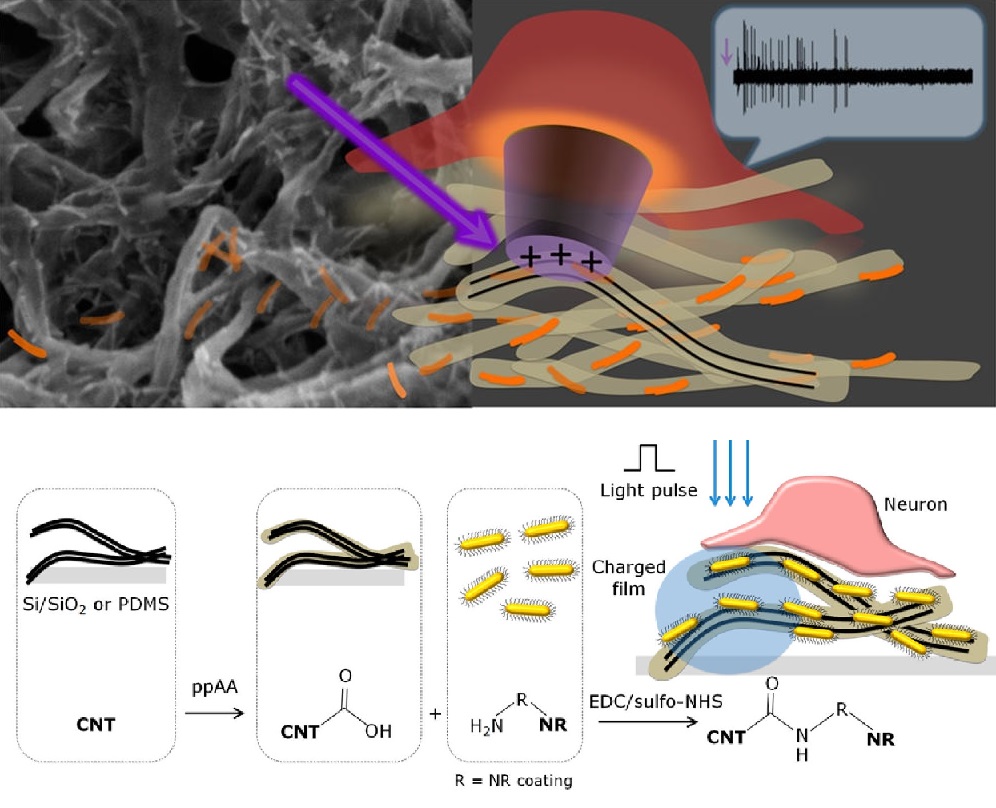Category: Nanotubes
-

Non-invasive nanosystem detects disease in breath
Technion professor Hossam Haick has developed a nanosystem that can identify the breath signatures of many diseases, including kidney failure, lung cancer, Crohn’s disease, MS, prostate and ovarian cancer. Each compound’s relative abundance in a person’s breath is assessed, and disease signatures are compared against healthy individuals. In a recent study, using mass spectrometry analysis, specific compound signatures…
-

Implanted nanotube sensor diagnostics
MIT researchers are developing tiny devices made from polymer wrapped carbon nanotubes that detect insulin, nitric oxide and fibrinogen — simplifying and automating diagnostic tests. Past efforts to develop implantable sensors have failed, due to the body’s inclination to protect itself and recycle biological material. Devices can become wrapped in scar tissue, or their components can be…
-

Carbon nanotube artificial retina restores light sensitivity
Tel Aviv University, The Hebrew University of Jerusalem and Newcastle University researchers are developing an artificial retina that sends sensory signals to the brain to address vision loss. Several groups are attempting this, but have had issues with metallic parts, cumbersome wiring, or a low resolution outcome. The TAU, HUJI and Newcastle team is working on…
-
Implanted nanotube sensor monitors health for up to one year
http://web.mit.edu/newsoffice/2013/new-implantable-sensor-1103.html MIT scientists are developing injectable and embeddable carbon nanotube sensors that can monitor blood sugar levels, inflammation, and other health issues. The continuous monitor can stay in a person’s body for up to a year. Researcher Nicole Iverson wrapped carbon nanotubes in DNA sensitive to nitric oxide and made two types of sensors. One is injectable…